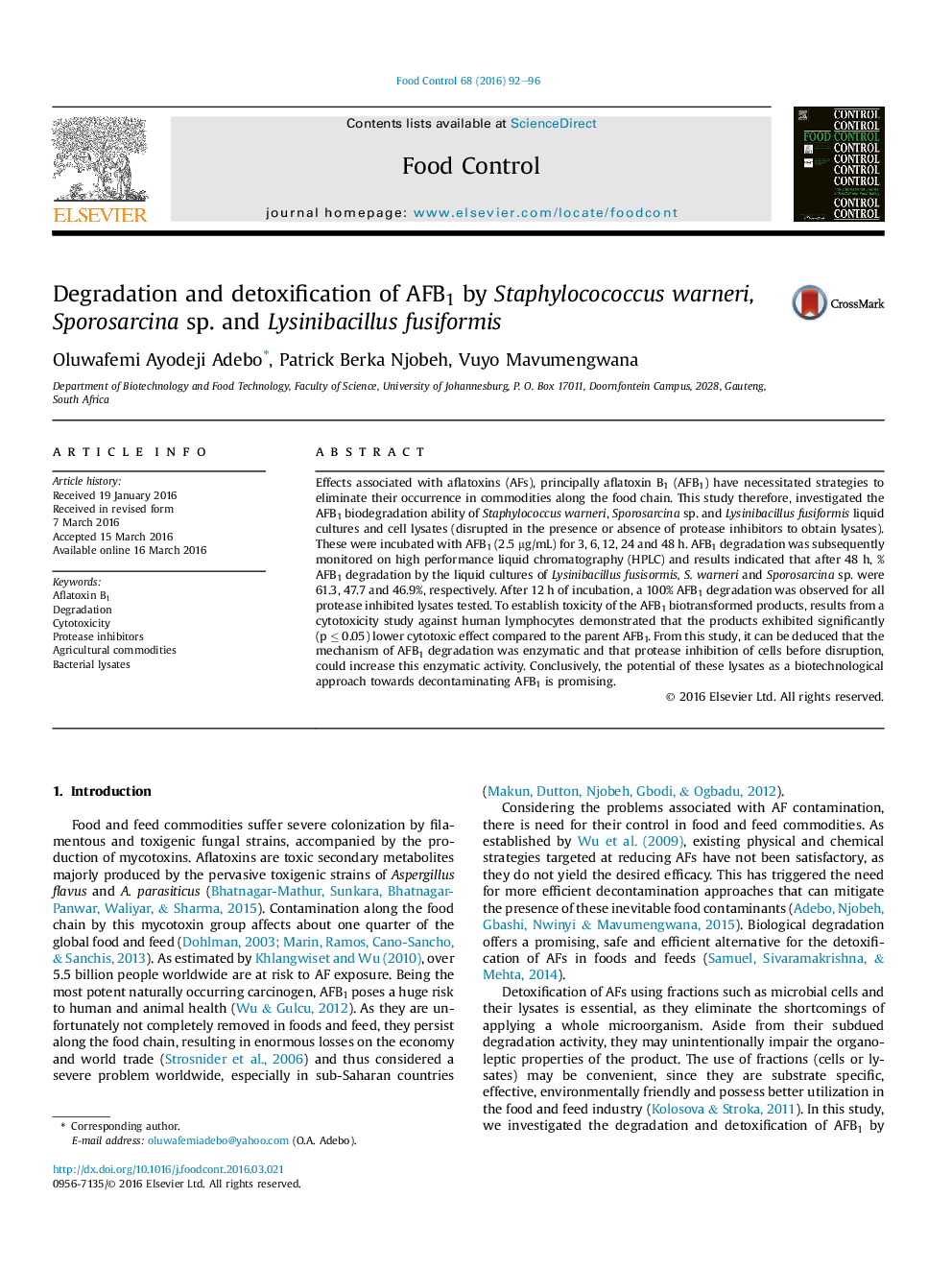| Article ID | Journal | Published Year | Pages | File Type |
|---|---|---|---|---|
| 4559027 | Food Control | 2016 | 5 Pages |
•Protease inhibition prior to cell lysis increased the protein concentration of the bacterial lysates.•All protease inhibited lysates yielded a complete AFB1 degradation in 12 h.•AFB1 was degraded to new compounds, with reduced toxicity on human lymphocytes.•Liquid cultures and lysates of Lysinibacillus fusiformis had better degrading ability compared to others.
Effects associated with aflatoxins (AFs), principally aflatoxin B1 (AFB1) have necessitated strategies to eliminate their occurrence in commodities along the food chain. This study therefore, investigated the AFB1 biodegradation ability of Staphylococcus warneri, Sporosarcina sp. and Lysinibacillus fusiformis liquid cultures and cell lysates (disrupted in the presence or absence of protease inhibitors to obtain lysates). These were incubated with AFB1 (2.5 μg/mL) for 3, 6, 12, 24 and 48 h. AFB1 degradation was subsequently monitored on high performance liquid chromatography (HPLC) and results indicated that after 48 h, % AFB1 degradation by the liquid cultures of Lysinibacillus fusisormis, S. warneri and Sporosarcina sp. were 61.3, 47.7 and 46.9%, respectively. After 12 h of incubation, a 100% AFB1 degradation was observed for all protease inhibited lysates tested. To establish toxicity of the AFB1 biotransformed products, results from a cytotoxicity study against human lymphocytes demonstrated that the products exhibited significantly (p ≤ 0.05) lower cytotoxic effect compared to the parent AFB1. From this study, it can be deduced that the mechanism of AFB1 degradation was enzymatic and that protease inhibition of cells before disruption, could increase this enzymatic activity. Conclusively, the potential of these lysates as a biotechnological approach towards decontaminating AFB1 is promising.
